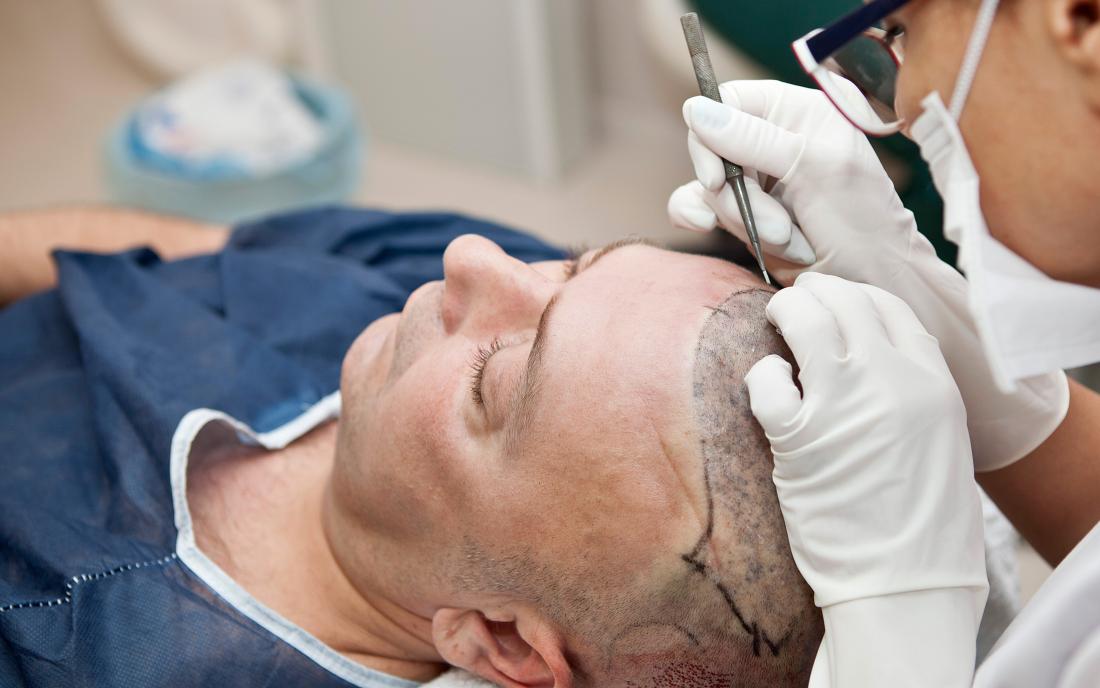Undergoing surgery to regain lost hair is becoming ever more popular. Thanks to technological advancements – and accessibility to affordable clinics abroad – more and more people are having a hair restoration treatment to try and bring back the hair of their youth.
But what are the pros and cons of this treatment, who’s it suitable for, and what are some of the things to watch out for? Below, we’ve gone into this in detail to help you to decide whether a hair transplant surgery is right for you.
What Is a Hair Transplant?
Hair transplantation surgery involves transplanting groups of hair follicles, or grafts, from one area of the body to a bald or thinning part. There are a few different methods used for this, with the most popular techniques being follicular unit extraction (FUE) and direct hair implantation (DHI). Hair transplants are ideal for men or women who are suffering from hair loss.
Hair Transplant Pros
There are many positive aspects that can come from undergoing a hair transplant. From treatment options abroad, to newly-found body confidence, we’ve outlined some of the main hair transplant pros below.
- Success rate: One of the most common questions people ask before having a hair transplant is, “Will it work?” Overall success rates for the two main hair techniques are around 95%. Following surgery, it can take some time for the final results to show. However, in the vast majority of cases, the results are extremely successful.
- Simple and safe: Hair transplantation is a minimally-invasive surgery, meaning that you don’t have to stay in the hospital overnight following treatment. It also only uses local anesthetic, so there’s none of the risks associated with the use of general anesthetic.
- Natural-looking hair: The days of unnatural-looking hair plugs are long gone, with hair transplants now able to produce really natural-looking results. This is thanks to innovative techniques in which surgeons are able to accurately determine the angle, distribution, and location of the transplanted hair follicles.
- No specialized care: Immediately following a hair transplant, a surgeon might advise using some specialist shampoos as well as a few other tips to protect the newly transplanted hair. However, once you’re through the recovery period, there’s no extra or specialized care that’s needed. It can be washed, brushed, and cut just as any normal hair would.
- Self-confidence: A successful hair transplant really has the potential to restore any lost confidence or self-esteem. Hair loss can be hard to cope with, especially as it usually coincides with other aspects of ageing. A hair transplant can reverse this trend and make you feel more confident with your body once again.
- At home or abroad: One of the best things about hair transplantation surgery is that there are plenty of options when it comes to choosing where to have the treatment. Prices in places like the UK and US can be very high. That’s why travelling abroad to Turkey for example, is such a popular choice. Here, the quality of care is just as high as at home, but it’s offered at a much more affordable price.
- Men or women: While hair transplantation surgery is most commonly performed on men, the treatment is also suitable for women. Female hair loss does differ slightly from that seen in men, however, while this means that techniques and methods might change slightly, the procedure can still be equally successful.
Hair Transplant Cons
While there are certainly tons of positive aspects to having a hair transplant, there are some things to watch out for too. It’s good to be aware of these before, during, and after you’ve had the treatment.
- Scarring: Depending on the specific method used for hair transplantation, the procedure can leave a small amount of scarring. However, this is usually minimal and not visible.
- Wait for results: After a hair transplant, it can take time for the effects of it to show. Small amounts of growth might be noticeable after a few months but in some cases, it can take up to 18 months for the full results to show.
- Side effects: With any hair transplant, there are a couple of potential side effects. Hair follicles can become infected, the scalp can swell, and the head can be itchy. However, these side effects can be greatly minimized by carefully following post-op care instructions from your doctor.

